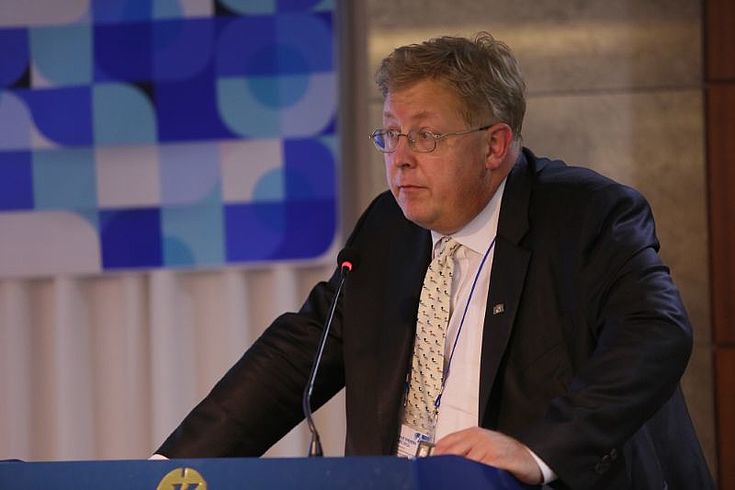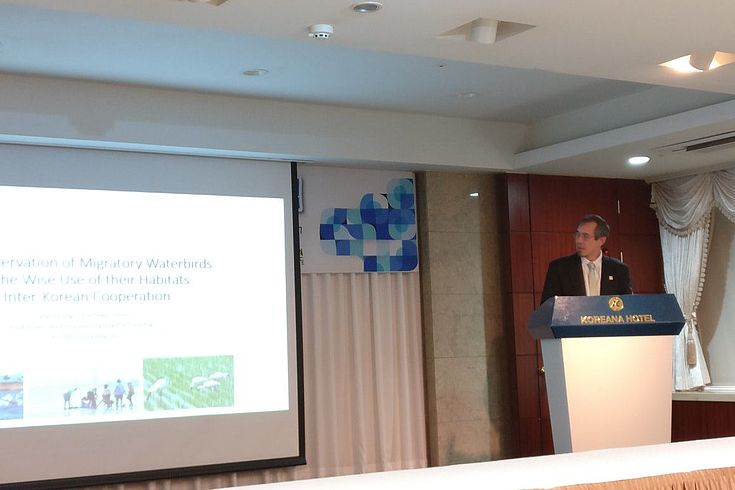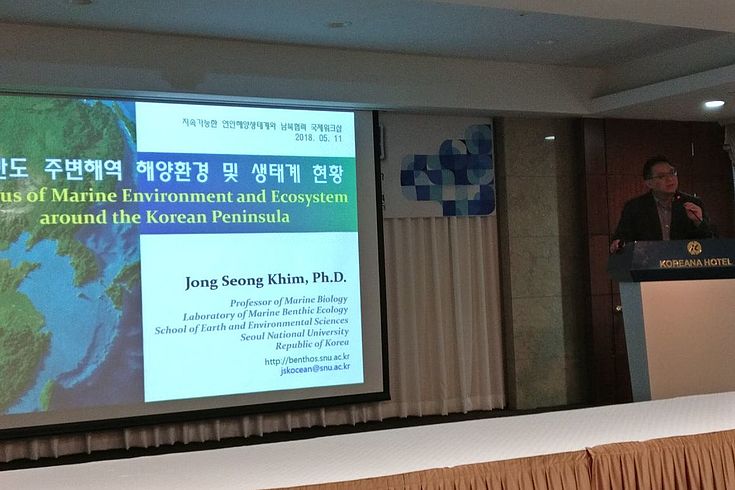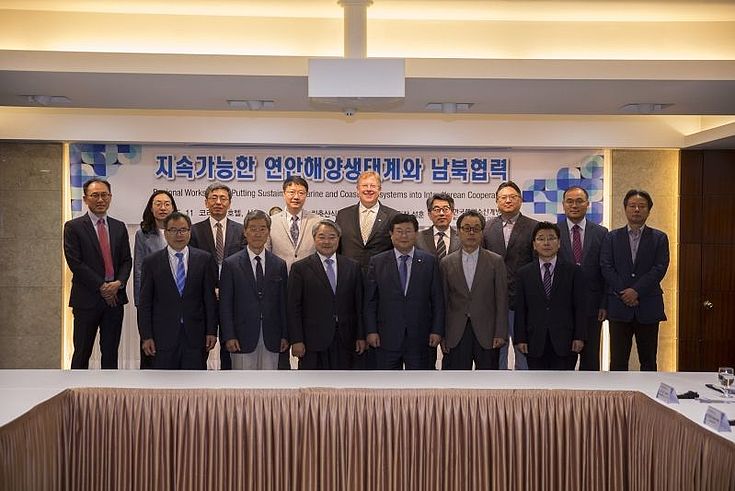Workshop Organized by the Korean Maritime Institute
Putting Marine and Coastal Ecosystems into Inter-Korean Cooperation
Dr. Bernhard Seliger of Hanns Seidel Foundation Korea
HSS
In the wake of summit diplomacy on the Korean Peninsula, multiple South Korean institutions, research institutes, local administrations, universities etc. are interested in establishing, or sometimes, in case they were already active in the era of sunshine policy, re-establish, projects with or about North Korea. For Hanns-Seidel-Foundation, which is working for a long time on a better preservation of ecological resources on the Korean Peninsula, including North Korea, this was a very important workshop and we were glad to be invited to discuss our experience with resource protection and sustainable use in North Korea.
The conference was opened by President Yang Chang-Ho of the KMI, as well as the co-organizer, Assemblyman Sul Hoon, Chairman of the Committee on Agriculture, Food, Rural Affairs, Oceans and Fisheries in the National Assembly. Both stressed the opportunities for inter-Korean cooperation after the successful inter-Korean summit.
Lew Young, Chief Executive of the EAAFP
HSS
The first session brought together experts with experience of marine and ecological cooperation in Northeast Asia. Yinfeng Guo, Chief Technical Advisor and Project Manager of the Yellow-Sea Large Marine Ecosystem project, short YSLME, started with a presentation on the eco-region Yellow sea and potential for cooperation. Afterwards, Lew Young, Chief Executive of the East Asian Australasian Flyway Partnership (EAAFP), presented about the work of the flyway partnership on the East Asian flyway, including the important work to protect water birds. Also here, there are many possibilities for cooperation with North Korea, which just this year became a member of the partnership. An even wider view took Jae-Young Lee, deputy head of the Prevention and Management of Marine Pollution in the East Asian Seas (PEMSEA) project, an Asian wide project, in which North Korea is a member, looking at Integrated Coastal Management (ICM) in North Korea. North Korea does have a model site, Nampo harbor near Pyongyang, but a lot of capacity-building has to take place before ICM can work in North Korea. Lev Neretin, coordinator of the Northwest Pacific Action Plan (NOWPAP) of the United Nations Environmental Program (UNEP), looked at the former experience of cooperation with North Korea. Similarly, Dr. Bernhard Seliger of Hanns-Seidel-Foundation Korea office detailed the experience of HSF in fields as varying as research on aquaculture, capacity-building for Clean Development Mechanism projects, afforestation projects and wetland protection projects. Several traits of the projects remained always similar, however, including the push for North Korean participation in international, peaceful mechanisms in the field of environment, trade and energy.
Prof. Jong Seong Khim of SNU
HSS
The second part of the conference looked from a more academic point of view on the status and issues of marine environment and cooperation, with Prof. Jong Seong Khim of Seoul National University talking about the status of the marine ecosystem around the Korean Peninsula and Dr. Jungho Nam of the Korea Maritime Institute looking into issues of inter-Korean cooperation for sustainable marine and coastal development.
Finally, the third part brought together a panel of experts, moderated by Prof. em. Chul-Hwan Koh of SNU, to discuss suggestions to the Korean government. They included researchers of public and private research institutes, with international experience and a widely varying domestic experience, and also an official from the Ministry of Oceans and Fisheries.
Group Photo of International Experts
Certainly, one workshop is not enough to develop an agenda for cooperation with the North and – most importantly – the North and its own agenda has to be found out before meaningful cooperation is possible. But it is still highly encouraging to see plans developed not as completely theoretical (and often highly unrealistic) cases for a future unification, but instead projects which can be realized – at least partly – here and now. Hopefully, North Korea will recognize this, too, and allow its researchers and citizens to participate in these future cooperation projects.




